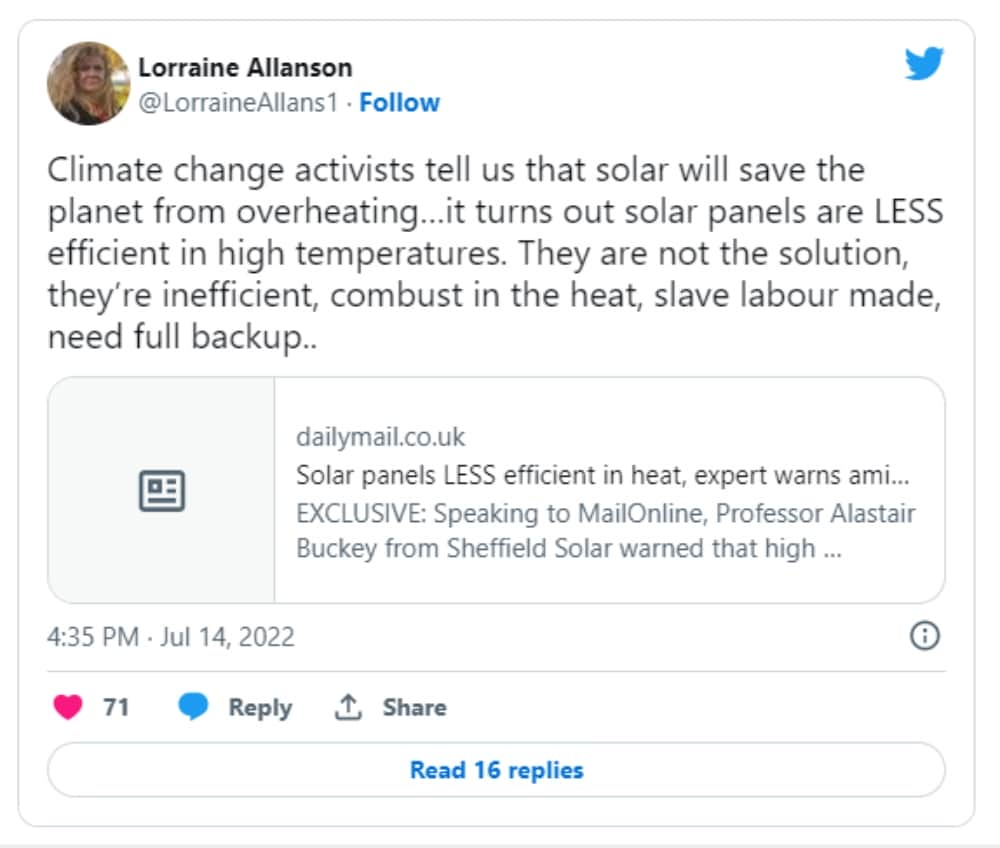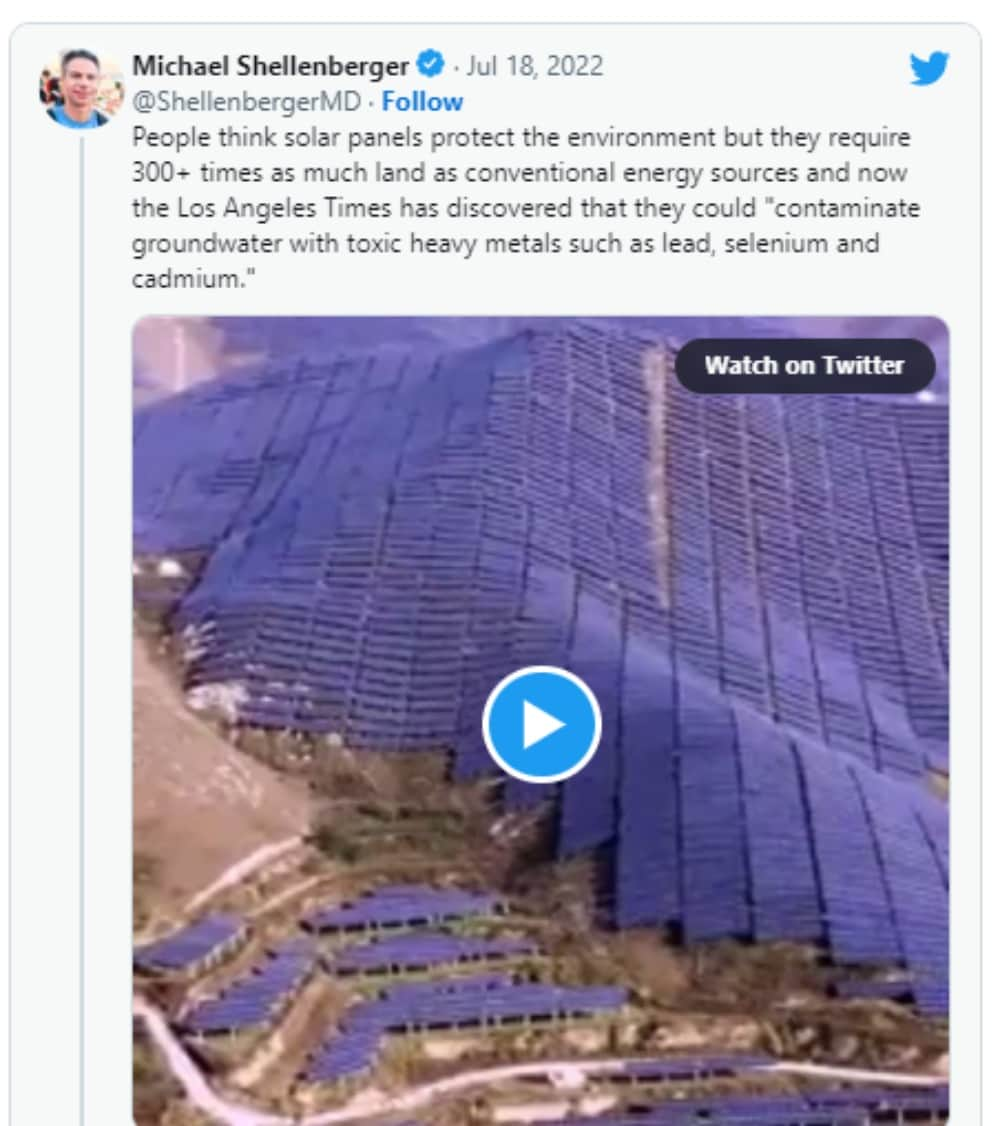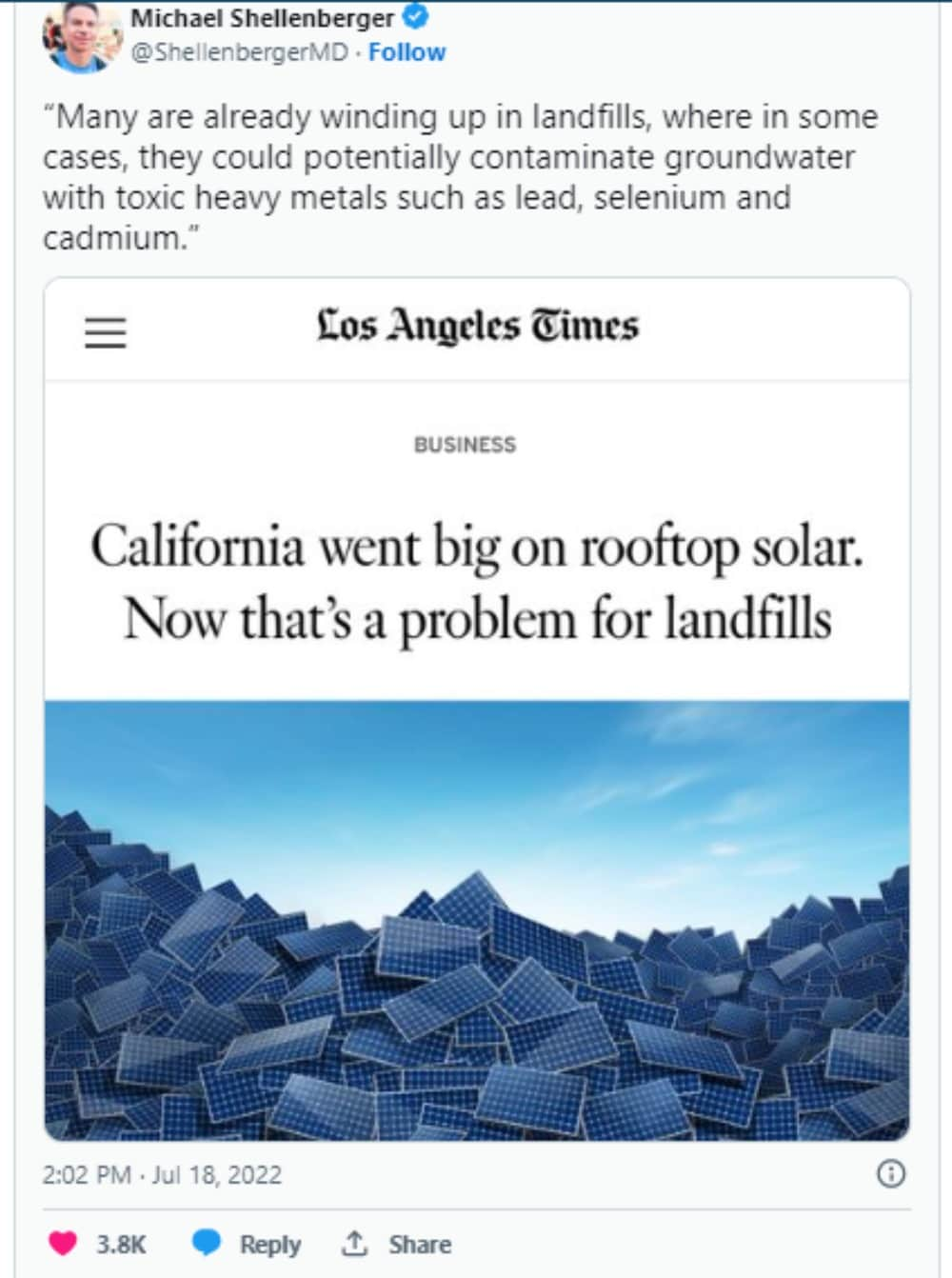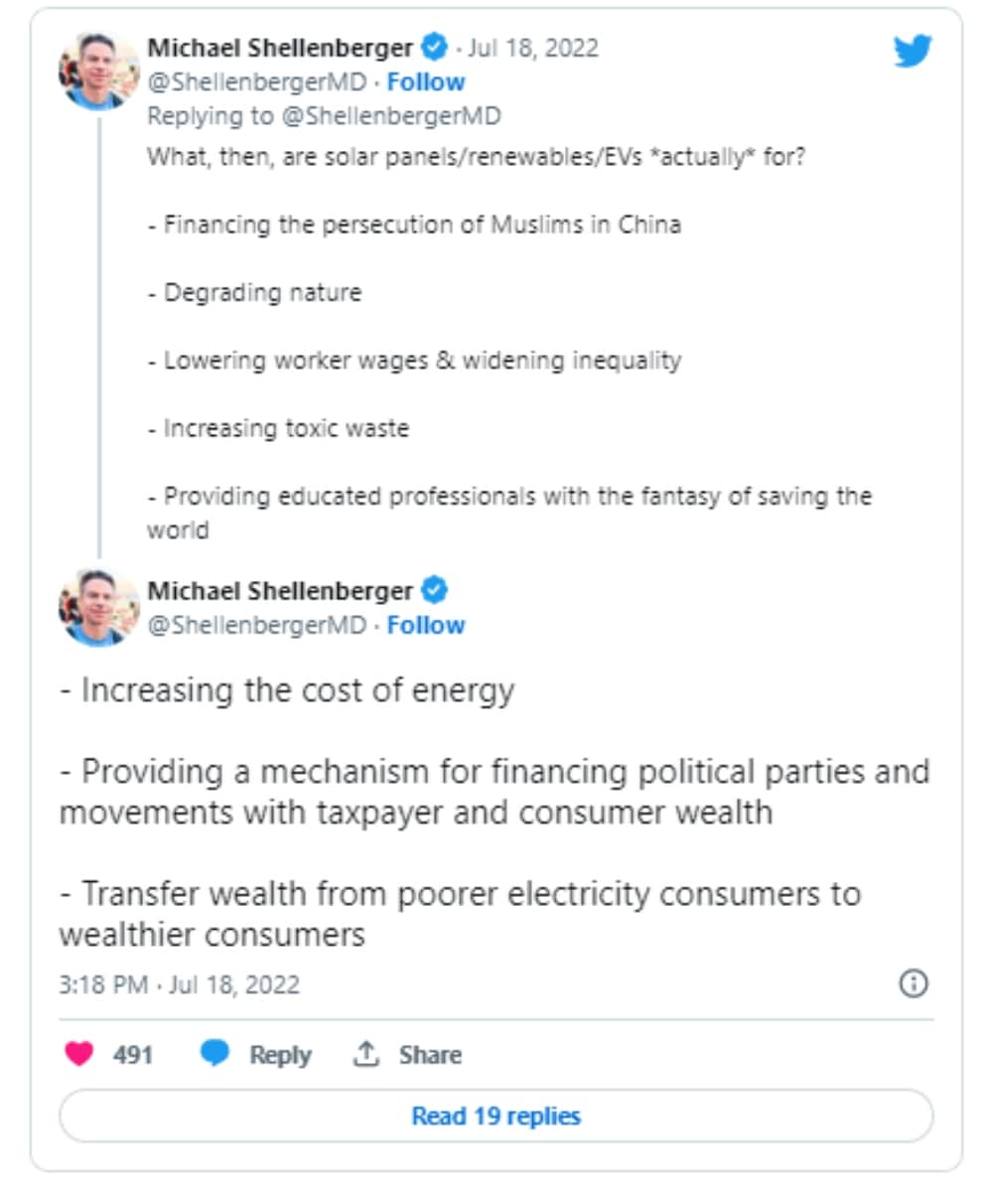Solar Panels Suffer Stunning Failure as Weather Becomes 'Too Hot' for Them to Handle
 namkoo solar
namkoo solar
CORRECTION, Aug. 9, 2022: This headline and commentary as published exaggerate the facts.
Our fifth and sixth paragraphs, taken together, indicate that, even at record-setting temperatures, solar panels continued to perform at better than 90% efficiency. While one could argue that a less-than-10% drop in efficiency might represent the “Stunning Failure” we claimed in our headline, it certainly did not render solar panels “useless” as we claimed in the third paragraph and our claim that they were “severely negatively impacted” in the fourth paragraph is questionable, as well. In reality, the data show that solar panels became marginally less efficient for a brief period of record-setting heat that may or may not ever repeat itself.
Well, it looks like solar panels aren’t going to be saving the planet any time soon.
In fact, some aren’t even able to work efficiently when the sun is too hot, which defeats the purpose of solar energy.
We know this because reports indicate the record heatwave tormenting the United Kingdom has effectively rendered solar panels there useless.
In a July 19 article headlined “Weather ‘too hot’ for solar panels,” The Telegraph of London reported that temperatures of over 104 degrees Fahrenheit — “for the first time ever in Britain” — severely negatively impacted local solar panels’ ability to store energy.
As temperatures rise above 77 F, solar panels become 0.35 percentage points less efficient with each increasing degree Celsius, the report said.
“The efficiency of solar panels is impacted by temperature, with high temperatures above 25 degrees [Celsius] negatively impacting on performance,” Tim Dixon, an analyst at Cornwall Insight, told the outlet. “It is likely that the extreme temperatures have impacted total output levels.”

Luis Villazon of Science Focus offered an explanation in answering a question about whether solar panels work better on hot days.
“Surprisingly, they perform worse as the temperature rises!” he wrote. “Solar panels work by using incoming photons to excite electrons in a semiconductor to a higher energy level. But the hotter the panel is, the greater the number of electrons that are already in the excited state. This reduces the voltage that the panel can generate and lowers its efficiency.
“Higher temperatures also increase the electrical resistance of the circuits that convert the photovoltaic charge into AC electricity.”
Now, it should be noted the past few weeks have been far from a failure on the solar energy front.
According to Fortune, Germany hit record levels of solar energy output over the weekend, although “if temperatures remain elevated for long” that output will certainly regress.
Despite this, the question remains: If climate change is truly the existential threat leftists claim it to be, won’t “extreme temperatures” be the new normal?
At that point, won’t their precious solar energy sources become more and more useless?
When it comes to solar panels, wind turbines and other “green” sources of energy, some experts believe there are already many better alternatives we could be using today.
Author and journalist Michael Shellenberger used to be a climate change alarmist and green energy enthusiast, but then he looked at the numbers.


“People think solar panels protect the environment but they require 300+ times as much land as conventional energy sources and now the Los Angeles Times has discovered that they could ‘contaminate groundwater with toxic heavy metals such as lead, selenium and cadmium,'” Shellenberger tweeted.

In the same Twitter thread, he asked, “What, then, are solar panels/renewables/EVs *actually* for?”
Shellenberger then offered a long list of negative trade-offs associated with the development and use of the left’s favorite energy sources:
• “Financing the persecution of Muslims in China.”
• “Degrading nature.”
• “Lowering worker wages & widening inequality.”


































